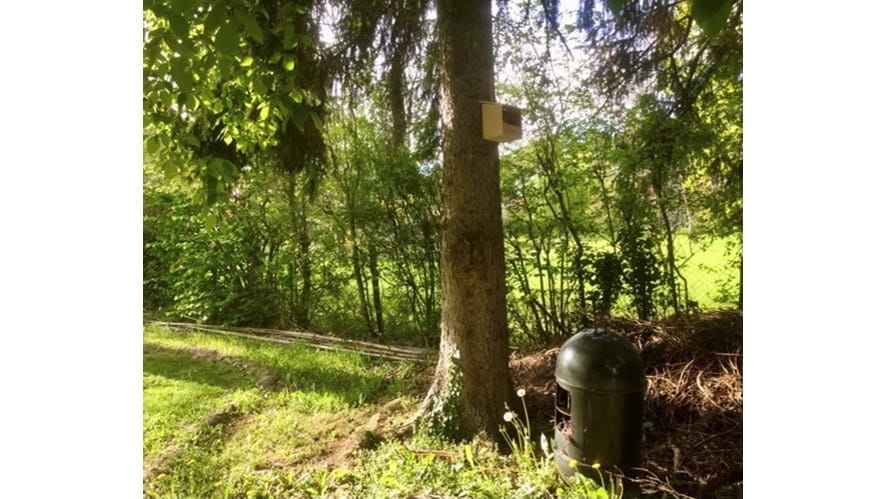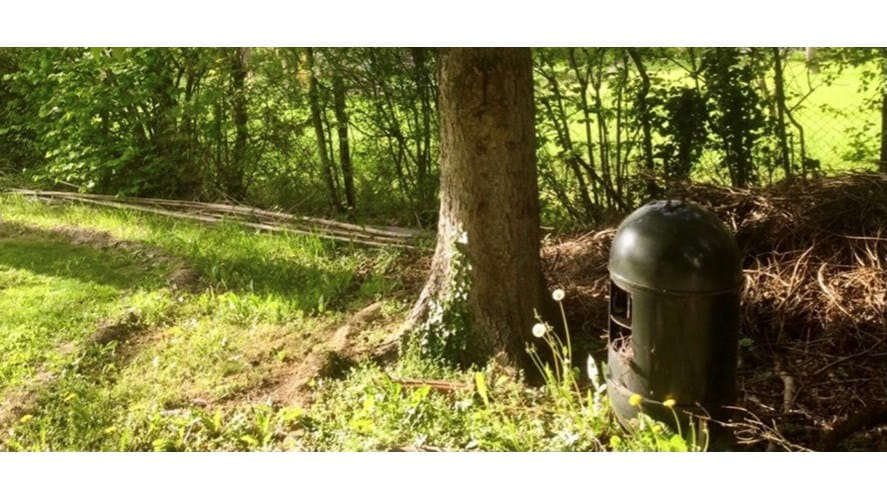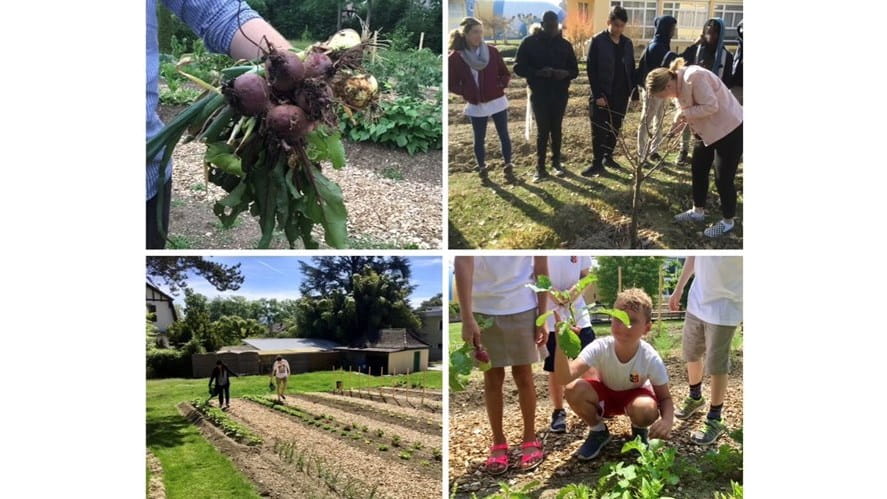We use cookies to improve your online experiences. To learn more and choose your cookies options, please refer to our cookie policy.
Join Us for Our Open House – Saturday, 14th March 2026


Written by Olly Corbin, teacher of IB Geography and Environmental Systems and Societies, CP Business and Sustainability Management and EcoGarden Coordinator.
Find out how CDL's EcoGarden was created and how our students are involved in this amazing project, led by Mr Corbin.
Nord Anglia’s recent regional Conference was entitled ‘Shaping the Future’ and it invited schools across Europe to share stories and best practice surrounding sustainability and environmental activism. Alongside the student-led session about the opportunities created by the Career-related programme, I was asked to present the story of CDL’s EcoGarden and how it is used to connect younger students with gardening activities and later to demonstrate sustainable food production and Agroforestry techniques.
This involves careful planning and spacing to use multiple forest layers from underground to canopy level. It exploits all the ecological benefits of a biodiverse system to eventually promote abundance and helps build resilience against drought, pests and disease. It allows farming to be less reliant on machinery, pesticides, fertilizers and irrigation.
I was inspired by a report I read about Ernst Götsch, a Swiss farmer and agriculturalist, who moved to Brazil and purchased over 500 hectares of deforested and degraded land. It was classified as ‘desert’ when sold as the springs had dried up and locals questioned the sense in acquiring such ‘useless’ land. After 30 years, the land was transformed into highly productive and profitable farmland based on the principles of Agroforestry.
He used hardy species like Eucalyptus to grow fast in poor soils, pruning them to create mulch that shaded the ground for water retention and began developing soils. ‘Ecological succession’ describes however larger and more complex plants/ trees colonise land and eventually become forests. Careful pruning/ thinning maintains a forest at the penultimate successional stage allowing sunlight to still reach the forest floor. It is at this stage where biodiversity and productivity peaks and useful crops can be harvested at multiple forest layers.
Ernst Götsch’s story was presented to the UN’s COP21 (Paris2015) as a model to show how Agroforestry could be regarded as a so-called ‘silver bullet’ for reaching many of the UN’s Sustainable Development Goals.
Characteristic of Agroforestry: | Benefits: |
Regenerative -accumulates and recycles nutrients | Soil quality is maintained, less reliance on fertilizers. Less vulnerable to oil price hikes. |
Stores huge amounts of carbon | Helps mitigate enhanced Greenhouse Effect. |
Increases rural employment | Relieves overcrowded developing cities. |
At scale (>500Ha) Agroforestry generates its own rainfall. | Ensures better water security -forests also prevent flooding and soil erosion. |
High Biodiversity | Maintains vital habitats so combats species loss. Boosts resilience against pests and diseases (organically). Invites positive symbiotic relationships. |
Whilst the species will be different, the same principles can be adopted in other climate types. In 2015, My wife, Joanne, and I travelled to southern Spain where Ernst Götsch came to deliver a course on Agroforestry and how it could be adopted in a Mediterranean climate. We created a small Agroforestry project from scratch over 5 days. Since then, we receive occasional photos revealing just how productive the garden is becoming, although it will take many years to reach maturity.
I was very happy that CDL’s management team approved my proposal to use some of our school grounds to create an experimental garden that could demonstrate the principles of Agroforestry.
It is hoped that they, and many other groups within our school community, will be able to enjoy a rich and varied place to learn, work and reflect throughout our glorious seasons.
Now, art classes draw flowers, musicians can perform, bird/ bat boxes are installed, Halloween pumpkins are grown, Valentine’s roses are composted, and organic garden produce is donated to local refugees. The list goes on and on… In decades to come, I hope that students will be able to return and see how the garden evolves and, who knows, perhaps some may take these principles elsewhere…
Watch the full presentation of CDL’s EcoGarden journey here.
Watch an insight into Ernst Götsch’s Agroforestry project in Brazil here.
Olly Corbin
Teacher of IB Geography, IB Environmental Systems and Societies, CP Business and Sustainability Management and EcoGarden Coordinator.
